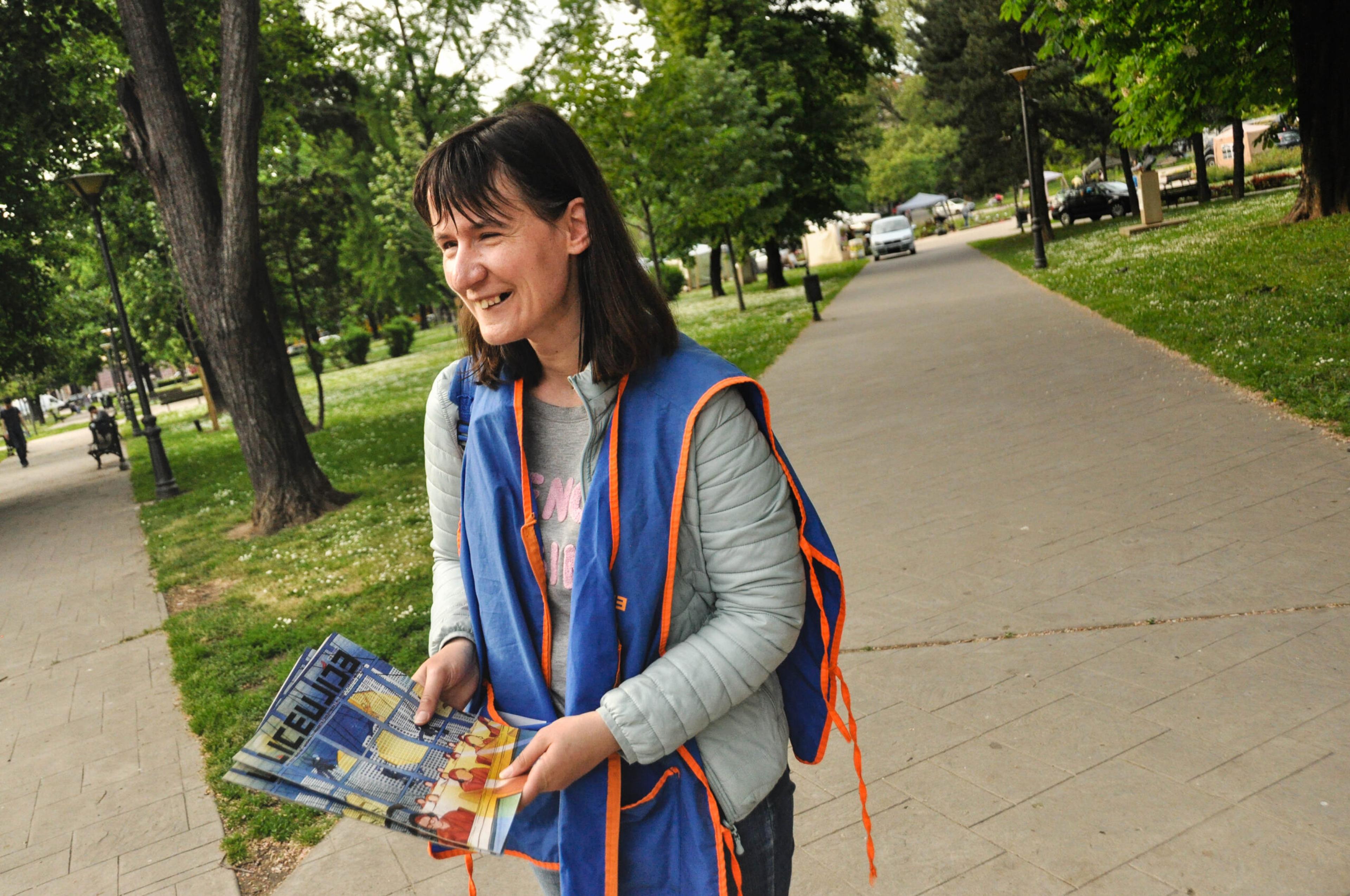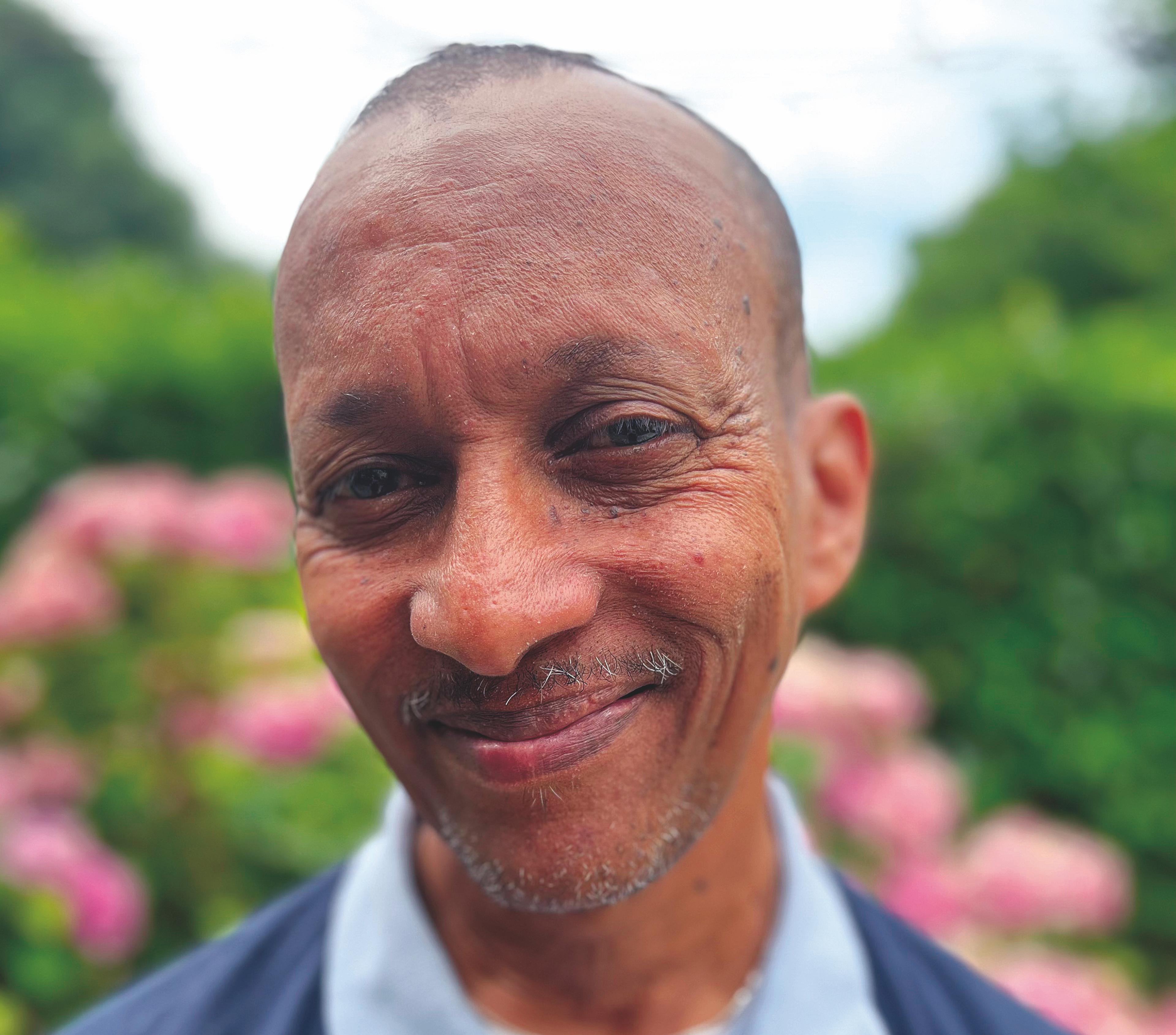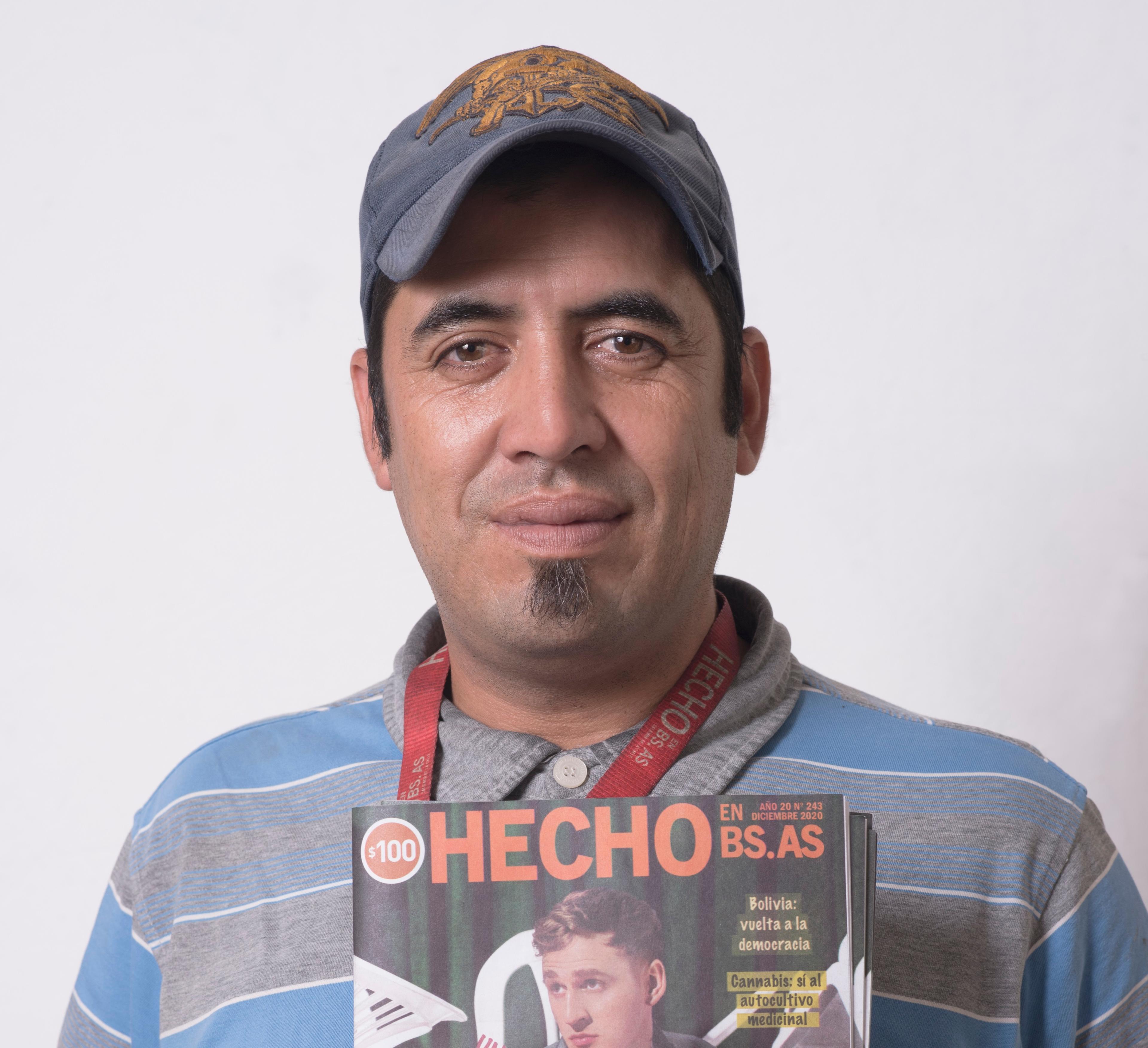Apropos vendors Monica and Daniel: “We’re doing well because we can help back home”
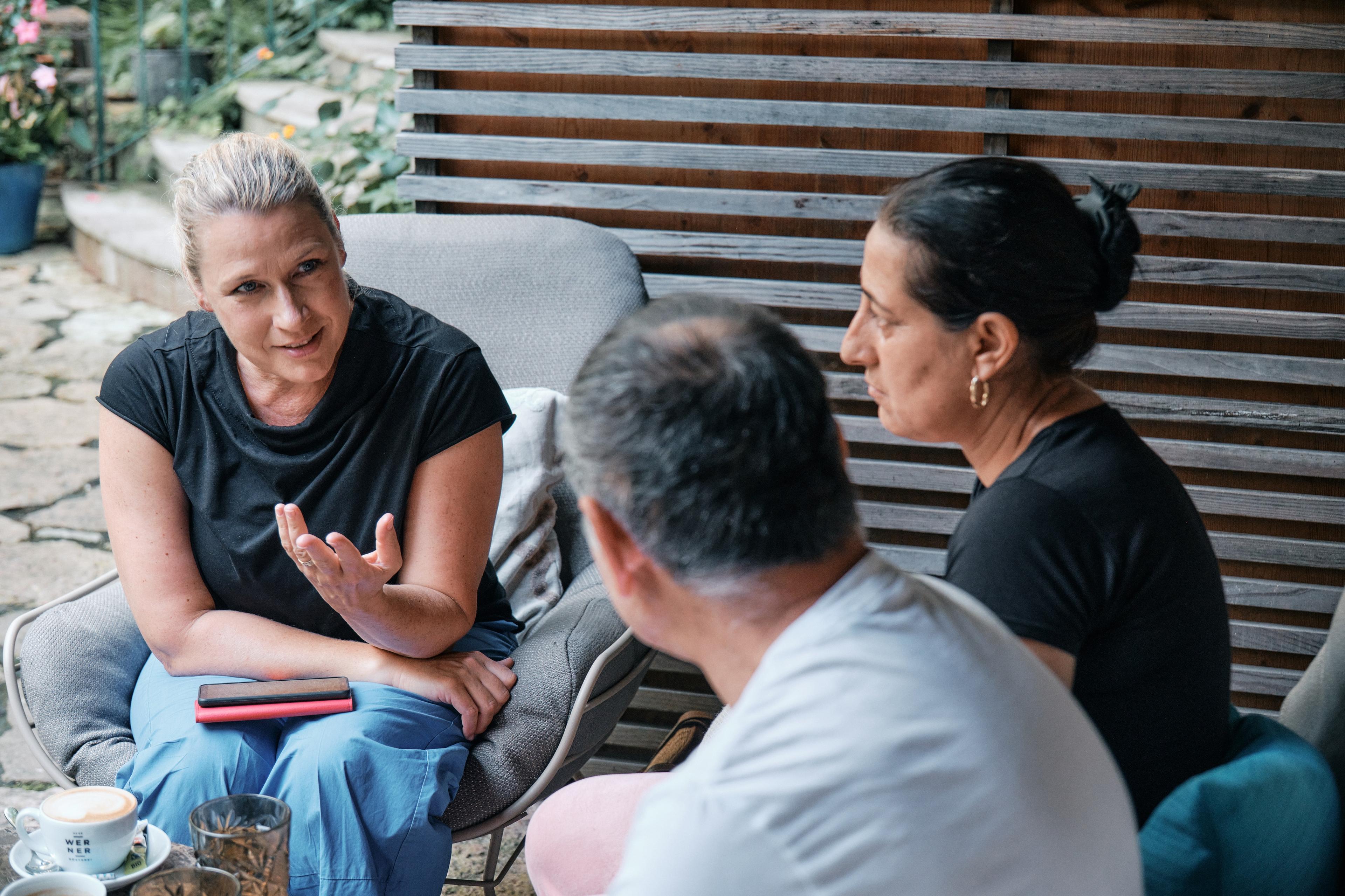
Ines Schütz talking to the Romanian couple who first met here in Salzburg. Photo credit: Siegrid Cain.
By Ines Schütz
- Vendor stories
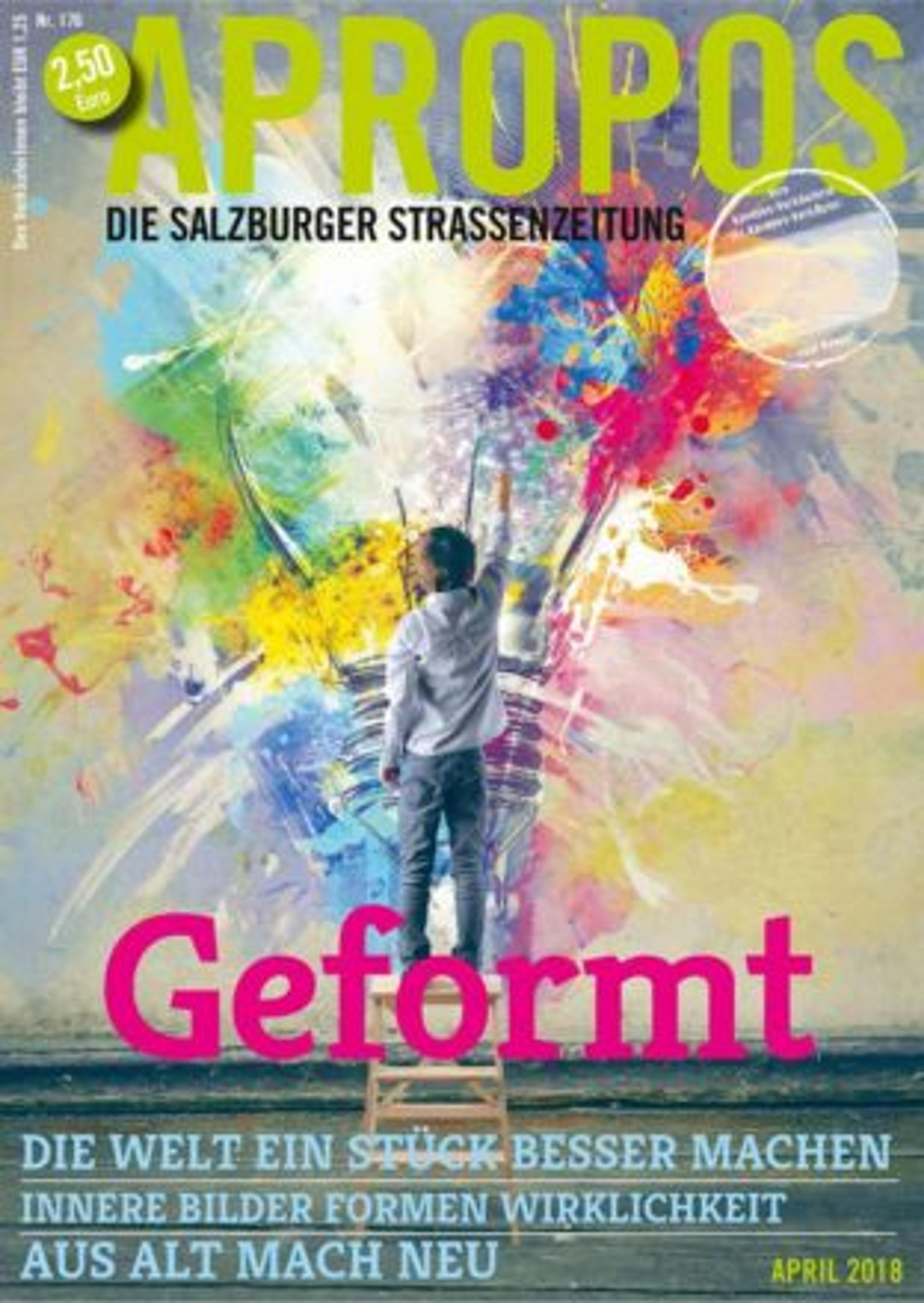
Monica’s son-in-law has been ill for a long time. Neither of his kidneys are fully functional, but the family cannot afford a transplant. A pension of €200 won’t get him very far when €10,000 are required before he will even be “considered” as a patient, Daniel explains. Even the money that comes from Austria is nowhere near enough. But Monica and Daniel say that as long as they can help, they will go on working; they have no other option.
If Monica’s son-in-law were healthy, her daughter would be able to come to Austria on holiday with her children, who are now 11 and 13—but she cannot leave her sick husband alone. Monica also worries about the future of her grandchildren in Romania. When they finish school, receiving just eight years of compulsory education, they will likely not be able to find work. They only have a chance of receiving a full education in Romania if Monica and Daniel send money: they know that.
Like Monica, Daniel also has two children and two grandchildren. Ever since Monica and Daniel became a couple, they have seen themselves as one big family: they support those at home who need it most as much as they can. To do this, they sell Apropos: Monica in Bischofshofen, and Daniel in front of the Billa store in Schwarzach, the manager of which is one of his regular customers. Daniel has been there for so long that he somehow feels part of it, and when he can help out in the store, he lends a hand.
Monica has been working as a cleaner in a school for a year now, starting her shifts there after six to eight hours of newspaper selling. She is happy to have job—which takes up a small amount of her time—because it also grants her access to insurance. It enabled her to undergo a necessary operation, from which she recovered well. The biggest hurdle in the hospital was that she doesn’t understand German well and never knew exactly what the hospital staff were trying to tell her.
Monica has just three years of school under her belt “and a thick skull,” she says with a laugh. But she is proud of her job in the cleaning team. German is spoken at her workplace and she understands everything there. There wasn’t much time for school in her childhood or Daniel’s; they spent their days working as labourers from an early age and moved with their families to wherever there was work. They went from school to school, and into the fields after lessons.
In the past, it was possible to simply live in Romania, says Daniel. He had work, it was possible to support himself, and he never would have left if this had remained the case. But this came to an end when the company he worked for went bankrupt. Daniel then worked in Italy for 13 years, on building sites or farms in Rome, Ancona and Florence. That was until things grew difficult there, too, as more and more people arrived in search of work, and not just from Romania.
Daniel has been in Austria for around nine years now and was introduced to Apropos by friends. He also worked for Caritas as a Romanian interpreter and delivering clothes. That is where he—with some help from his phone—learned German, he says.
He also got to know Monica here, through Caritas and while picking strawberries, and he is grateful that things turned out this way. Back home in Romania, they probably never would have met, as their hometowns are too far apart.
Monica has been in Bischofshofen for over six years now. Her father arrived before her, and she lived and shared everything with him until a tragic accident in June 2021 cost him his life. While trying to retrieve a woman’s handbag, which had slipped down an embankment, he fell himself. After a large-scale search operation, his corpse was retrieved from the Salzach two days later.
This was a traumatic event for Monica, and the length of the subsequent police inquiry and difficulties surrounding his repatriation to Romania were more than stressful. It was only thanks to the help of friends and acquaintances, people who bought Apropos papers from her and the former Apropos manager that they were able to finance the repatriation of the deceased to Romania. Fourteen months later, Monica’s mother also died.
To this day, it bothers Monica that she knows so little about how the accident happened. She was told that a woman from Hallein had tried to rescue her father. She would like to speak to this woman, who also made the call to the emergency services. A meeting between the two was actually planned, but after her return from the funeral in Romania, she was unable to make further contact. She just needs to know how it happened, she says; what the woman saw, what it was like.
While many problems have arisen, Monica and Daniel are still grateful that they can be here; they are better off, they say. Daniel says that he is fine because he knows that he can help others back home. He has been here for so many years now that most people know him. As he sees it, if he doesn’t cause any problems, he doesn’t have any.
They have been renting a friend’s flat since last year and travel to Romania three to five times per year, partly because they now have to leave and re-enter the country after three months, which is monitored.
The couple miss their children and grandchildren in Romania the most. Monica’s daughter regularly sends her homemade pickled cabbage so that she can make sarmale—traditional Romanian cabbage rolls—in Austria.
Monica and Daniel want to thank their customers and the Apropos team.
Translated from German via Translators Without Borders
Courtesy of Apropos / INSP.ngo
